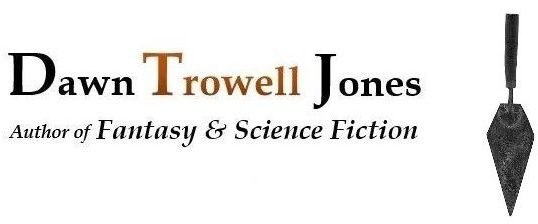 As I know you know, you are far from alone in your feelings about SFF and its use of terminology. And not just what you said about pointless frustration. Good speculative fiction must go much further than simply providing a different vocabulary to simulate an unfamiliar world and its people. Culture is so much more than words. Where’s our handy-dandy anthropologist to give us a lecture on what-all culture is? Haha! I’d love to have some experts in my pocket to pester with questions.
As I know you know, you are far from alone in your feelings about SFF and its use of terminology. And not just what you said about pointless frustration. Good speculative fiction must go much further than simply providing a different vocabulary to simulate an unfamiliar world and its people. Culture is so much more than words. Where’s our handy-dandy anthropologist to give us a lecture on what-all culture is? Haha! I’d love to have some experts in my pocket to pester with questions.
In my novel I’m Your Goat, for example, I needed to show some of the objects, concepts, and expectations that have remained the same in more-or-less our neck of the woods after a hundred-and-fifty-years, when a great deal of energy will have been put into various social issues and environmental upheaval while other advances lapsed. I needed to show the things that have changed but almost look the same yet wouldn’t feel or behave quite the same to us; and finally, I had to show the things considered commonplace in that future which would seem very weird to us. On top of all that, I had to give my characters a supernatural experience beyond even their ken, though Venerable Gao and company pretend to themselves to be on top of things. A fascinating example of a supernatural-sci-fi blend is a novella by Kai Ashante Wilson called A Taste of Honey. One I mentioned in a prior post – that I didn’t enjoy as much but was also nominated for and won awards – is This is How You Lose the Time War. Both are literary speculative fiction heavy on the immersion experience, as is I’m Your Goat, though not as extreme. The style serves a function, to help portray an environment we both can and can’t quite understand.
 In much of early sci-fi most things were explained — and fantasy, too, such as the use of Bilbo’s memoir to explain Middle Earth in Lord of the Rings. There was no context, other than tapping the world’s history, myths, fairy tales, and ghost stories. Characterization took a back seat and could be quite dry, which Margaret Atwood played with in a side speculative story in The Blind Assassins. But Dune (first published in 1965), like Tolkein’s Middle Earth, is an immersive world with brilliant character portrayals and its own vocabulary. Herbert provided a glossary at the end of his books. And yet, only at the very end of the Dune series, in the last book put together posthumously by Herbert’s son, do we get to know what the Tleilaxu Ixians are all about, both physiologically and philosophically. Stories themselves must have a “narrative voice,” and if you have a voice, you have a character. The Ixian mystery was part of Dune’s character, if you will. Not everything needs to be explained. How does a SFF writer bring forth the humanity in an imaginary environment? Just like mainstream fiction, SFF fiction is telling the story of us. Do we need to know more about Tolkein’s idea of what wizards like Gandalf and Saruman are to care about their plight? I don’t, but I was curious. If we SFF authors forget the humanity, the characters and their quirks, we’re just giving a report. At best, it’s ethnography. Part of a SFF story’s appeal to fans is how it highlights what humans are capable of in terms of morality, ingenuity, and pure imagination, that we’re capable of creating truly amazing and unusual milieus in which to live.
In much of early sci-fi most things were explained — and fantasy, too, such as the use of Bilbo’s memoir to explain Middle Earth in Lord of the Rings. There was no context, other than tapping the world’s history, myths, fairy tales, and ghost stories. Characterization took a back seat and could be quite dry, which Margaret Atwood played with in a side speculative story in The Blind Assassins. But Dune (first published in 1965), like Tolkein’s Middle Earth, is an immersive world with brilliant character portrayals and its own vocabulary. Herbert provided a glossary at the end of his books. And yet, only at the very end of the Dune series, in the last book put together posthumously by Herbert’s son, do we get to know what the Tleilaxu Ixians are all about, both physiologically and philosophically. Stories themselves must have a “narrative voice,” and if you have a voice, you have a character. The Ixian mystery was part of Dune’s character, if you will. Not everything needs to be explained. How does a SFF writer bring forth the humanity in an imaginary environment? Just like mainstream fiction, SFF fiction is telling the story of us. Do we need to know more about Tolkein’s idea of what wizards like Gandalf and Saruman are to care about their plight? I don’t, but I was curious. If we SFF authors forget the humanity, the characters and their quirks, we’re just giving a report. At best, it’s ethnography. Part of a SFF story’s appeal to fans is how it highlights what humans are capable of in terms of morality, ingenuity, and pure imagination, that we’re capable of creating truly amazing and unusual milieus in which to live.
 Culture shifts with technology. The historian I’ve spoken of, Harari, asserts that our modern era owes its start — and rapid acceleration — to the simple fact that at some point people decided it was okay to say “I don’t know.” I don’t know why the sky is blue, why my child died of disease, why my crops failed, why this mechanism I made isn’t working, etc. This individualist notion launched a dialectic. “I don’t know” led to “but maybe I can know.” Prior to that moment, whatever wasn’t in the Bible for readers to uncover on their own or for the local priest to explain to them wasn’t deemed worth knowing: if God meant it to be known, God would have provided the information in His Book. Everything was in “God’s hands.” The acceleration of scientific advances characteristic of our modern era comes from the steps that emerged once people at large admitted “I don’t know,” then tried to know, and in the process found new ways of knowing. I say, speculative fiction celebrates the awesome power of “I don’t know.”
Culture shifts with technology. The historian I’ve spoken of, Harari, asserts that our modern era owes its start — and rapid acceleration — to the simple fact that at some point people decided it was okay to say “I don’t know.” I don’t know why the sky is blue, why my child died of disease, why my crops failed, why this mechanism I made isn’t working, etc. This individualist notion launched a dialectic. “I don’t know” led to “but maybe I can know.” Prior to that moment, whatever wasn’t in the Bible for readers to uncover on their own or for the local priest to explain to them wasn’t deemed worth knowing: if God meant it to be known, God would have provided the information in His Book. Everything was in “God’s hands.” The acceleration of scientific advances characteristic of our modern era comes from the steps that emerged once people at large admitted “I don’t know,” then tried to know, and in the process found new ways of knowing. I say, speculative fiction celebrates the awesome power of “I don’t know.”
However, you are right. Readers can only absorb so much. This is absolutely true. To mainstream readers unfamiliar with or uninterested in the anthropological role of the SFF reader, it may seem like a failure on the SFF author’s part not to have explained everything. The minute these readers hit the familiar/not-familiar situation, they feel disoriented and stressed, and often, annoyed. Those who read SFF bring to the table years of experience in SFF worlds — they know the tropes and don’t need as much explanation. On the other hand, sometimes they have strong notions of how a SFF story is “supposed” to play out that limit them.
I’ll be gallant and pick on my own term “handler” for a minute. I used it in a sci-fi short story I have out on submission at this very moment, “The Yugila Runaway” (wish us luck!). When a familiar term is found in a SFF world and given importance, like “handler,” readers are invited to assume the term has been adapted to a purpose not too far off from what they’d expect. Close, but not the same. We have handlers today. They handle animals and protect them from the public. Other handlers handle people, such as spies, or celebrities in certain contexts, as a buffer to protect the individual from other people or a difficult situation. Since SFF universes are large, one of the challenges I had as the writer of this story was to let readers know soon enough that the handler is handling a person, which lets readers know there’s going to be a handler/handled dynamic central to the story’s conflict. That’s merely the starting point. Like stepping into a real-world foreign culture, the SFF reader does not expect to perfectly understand a speculative world at the outset. Just enough to be grounded. I like to unfold information slowly, as it comes up, as the character in some way deals with it. Character bias should be happening all over the place. In my opinion, this gradual homing in on the story is the best way to amplify suspense and make the world pop, by simulating how we learn. It takes some skill. A debate could be had over whether I’m overdoing the vocabulary in so short a piece. Another debate could be had over whether world building in the short space of a short story allows for aspects never explained (only inferred) as part of the background picture. But yes, the art is in how to convey information about a world that does not exist and to inspire interest in both it and the characters without bogging the story down with too much exposition. Characters are critically important to successful SFF, but to understand them, we must view them in their own context, as we would the inhabitants of any culture or subculture that isn’t ours.
 One easy example might be the social structure of Dune. On Twitter not long ago, someone declared with all sincerity, “Dune is elitist AF!” I lingered over that Tweet – that’s why I remember it. Yes, Dune is. But in the context of that world, or any SFF world, the reader is encouraged to ask, “What events led to such a social structure?” — particularly, when the technology is otherwise so advanced. Did the scarcity of and dependence on the Spice mélange in itself shape their autocratic, patriarchal system? Food for thought. Most important of all, the reader is invited to say, Yes, these people are elitist AF, but… how are they also like me, and people I know?
One easy example might be the social structure of Dune. On Twitter not long ago, someone declared with all sincerity, “Dune is elitist AF!” I lingered over that Tweet – that’s why I remember it. Yes, Dune is. But in the context of that world, or any SFF world, the reader is encouraged to ask, “What events led to such a social structure?” — particularly, when the technology is otherwise so advanced. Did the scarcity of and dependence on the Spice mélange in itself shape their autocratic, patriarchal system? Food for thought. Most important of all, the reader is invited to say, Yes, these people are elitist AF, but… how are they also like me, and people I know?
Some readers in my critique groups suggested I’d made an error when the main character Rol Piper said things that didn’t quite line up with the picture. It wasn’t an error, though I love that they asked (very helpful). Further into the story, I chose the dialogue tag “he lied” instead of “he said” to make it plain that Rol lies. Rol is an unreliable narrator, an obsessed person willing to lie and betray in pursuit of what he wants, which isn’t necessarily what he says he wants. Sometimes he lies to himself. So, Rol is unreliable and maybe not good.
But Rol might do something wonderful like bring back a willing Epidoptra. Wonderful, if she’s what their world needs. Wonderful for her, if she wants to come back. But is it a good thing? I chose not to go into that. The answer is complicated, as is life. I left the core story simple, ending with a question mark. In my fiction, for better or worse, I’m rarely going to explain goodness, though the core story as told must resolve enough to satisfy. As you say, most people are good or at least believe they work for the good. They’re the heroes of their own stories. That’s my position, too. As for Tamr and Gao in I’m Your Goat, to my mind, they’re good. I care deeply for them, feel protective and loving towards them as only a harsh mother can. They’re socially off, sure, but they’re good. They have done and will continue to do amazing things as they move on with the life half-given to them and half earned, half-sought by them and half-imposed upon them, by way of their half-blind compulsions. They hurt people in the process, including themselves. Seems very human to me! So, that’s my truth and why I wanted to write I’m Your Goat, to capture a complicated aspect of reality as I feel it. Part of the “message” is in the emotions. But it’s art! It works if it works. My job is to make my vision work.
 Okay, friend, you inspired me to set these ideas down in a flurry of typing. I hope they make sense. Bottom line, SFF is its own beast, its own art, and I lean towards an immersive literary style for SFF readers with a love for the anthropological experience – those who want to figure out a new world while in it. True, by its nature, speculative fiction generally creates a bit of a remove for the reader, which perhaps is not what mainstream readers typically seek. Some sci-fi traditionalists want a lot of remove, to the point of a Warhol Campbell’s soup can. They do not want messy human interactions or to get bogged down in psychology. Many of them find other people exhausting; they want situations made plain. I get that. I’ve enjoyed some science fiction or fantasy that wasn’t emotionally or psychologically complex because it wasn’t. But in those instances, there had to be something else sufficiently engaging or I got bored. Normally, I want a big fat slice of psychology. To hold my attention, I need multiple story facets working together to give me a sense of a world in motion. When I was a kid, my mother used to remark how my drawings always portrayed people and objects in motion. So, I’d say, in my stories now, that feeling that the story belongs to a larger context, that the reader is getting a snippet of a world in motion without full explanation — a candid glimpse of it, if you will — is exactly the sort of art I’m going for. I try! I think it’s fair to say we are all trying.
Okay, friend, you inspired me to set these ideas down in a flurry of typing. I hope they make sense. Bottom line, SFF is its own beast, its own art, and I lean towards an immersive literary style for SFF readers with a love for the anthropological experience – those who want to figure out a new world while in it. True, by its nature, speculative fiction generally creates a bit of a remove for the reader, which perhaps is not what mainstream readers typically seek. Some sci-fi traditionalists want a lot of remove, to the point of a Warhol Campbell’s soup can. They do not want messy human interactions or to get bogged down in psychology. Many of them find other people exhausting; they want situations made plain. I get that. I’ve enjoyed some science fiction or fantasy that wasn’t emotionally or psychologically complex because it wasn’t. But in those instances, there had to be something else sufficiently engaging or I got bored. Normally, I want a big fat slice of psychology. To hold my attention, I need multiple story facets working together to give me a sense of a world in motion. When I was a kid, my mother used to remark how my drawings always portrayed people and objects in motion. So, I’d say, in my stories now, that feeling that the story belongs to a larger context, that the reader is getting a snippet of a world in motion without full explanation — a candid glimpse of it, if you will — is exactly the sort of art I’m going for. I try! I think it’s fair to say we are all trying.
